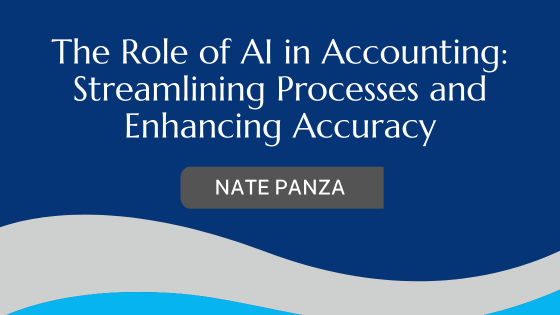In the contemporary business landscape, the integration of artificial intelligence (AI) has revolutionized numerous sectors, and accounting stands as a prime example. The traditional perception of accounting as a manual, labor-intensive task has shifted significantly due to AI’s involvement. Its role in streamlining processes and enhancing accuracy has redefined how financial data is handled, interpreted, and utilized.
AI’s impact on accounting is multifaceted, particularly in streamlining processes. Mundane and repetitive tasks, such as data entry, reconciliation, and categorization, can now be automated through AI-powered systems. These systems use machine learning algorithms to recognize patterns and process vast amounts of financial data swiftly and accurately, reducing the margin for human error. By automating these tasks, accountants can reallocate their time and expertise towards more strategic and analytical endeavors, fostering innovation and higher-value contributions within the field.
Moreover, AI-driven software in accounting demonstrates unparalleled potential in enhancing accuracy. The ability of AI algorithms to analyze data with precision minimizes the likelihood of errors that commonly arise from manual input. By continuously learning from data patterns and historical records, AI systems can detect anomalies and discrepancies, flagging potential issues for human review. This not only reduces potential errors but also ensures compliance with regulatory standards, thereby mitigating risks and improving overall data integrity.
One of the most prominent applications of AI in accounting is predictive analytics. Through predictive modeling, AI algorithms analyze historical financial data to forecast future trends, cash flows, and potential risks. This foresight helps to empower businesses to make informed decisions, optimize resource allocation, and devise strategies to navigate potential challenges. Whether it’s predicting market trends or anticipating future financial outcomes, AI’s predictive capabilities offer a competitive advantage in the dynamic realm of accounting.
Furthermore, AI-driven tools facilitate real-time reporting and analysis. By leveraging AI, accountants can access up-to-date insights and generate comprehensive reports almost instantaneously. This rapid access to accurate information enables quicker decision-making, fostering agility and adaptability in responding to changing financial landscapes.
However, while AI brings numerous benefits to the accounting sphere, it’s crucial to acknowledge its limitations. The reliance on algorithms necessitates careful monitoring and validation to ensure the ethical use of data and prevent biases that might inadvertently affect financial assessments.
The integration of AI in accounting has been transformative, revolutionizing traditional practices by streamlining processes and elevating accuracy to unprecedented levels. The shift towards AI-driven solutions not only optimizes operational efficiency but also empowers accountants to embrace more strategic roles, driving innovation and informed decision-making within businesses. As technology continues to advance, the connection between AI and accounting will undoubtedly shape a more dynamic and efficient financial landscape.

